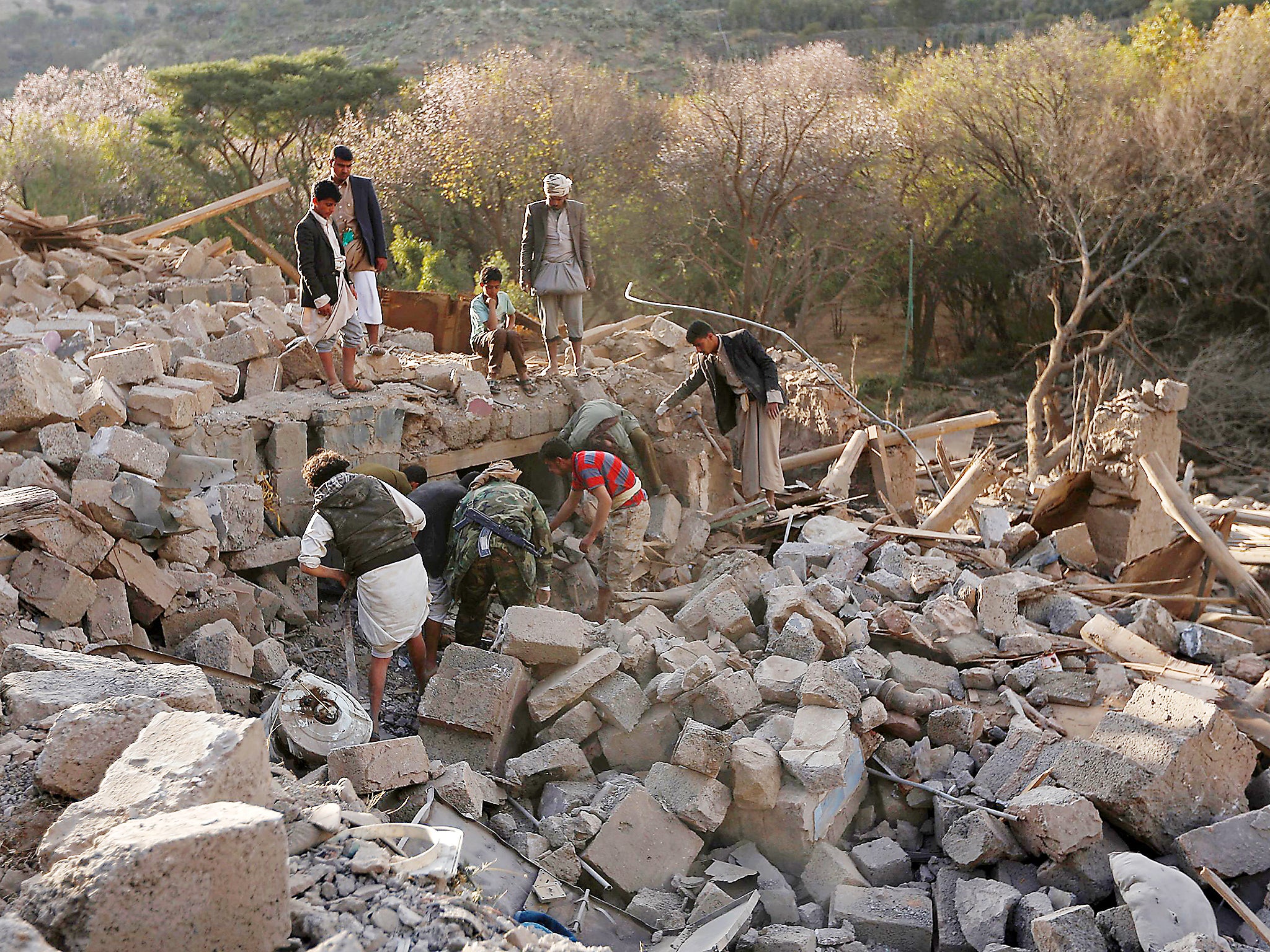Yemen ‘withdraws permission for US ground raids’ after Donald Trump’s first botched military operation
Reported decision would mark major set back for new US president, who has emphasised tackling Islamic extremism is a priority of his administration

Your support helps us to tell the story
From reproductive rights to climate change to Big Tech, The Independent is on the ground when the story is developing. Whether it's investigating the financials of Elon Musk's pro-Trump PAC or producing our latest documentary, 'The A Word', which shines a light on the American women fighting for reproductive rights, we know how important it is to parse out the facts from the messaging.
At such a critical moment in US history, we need reporters on the ground. Your donation allows us to keep sending journalists to speak to both sides of the story.
The Independent is trusted by Americans across the entire political spectrum. And unlike many other quality news outlets, we choose not to lock Americans out of our reporting and analysis with paywalls. We believe quality journalism should be available to everyone, paid for by those who can afford it.
Your support makes all the difference.Yemen has denied reports that it has withdrawn its permission for the US to conduct special operations missions in the country after a raid on an al-Qaeda base last month killed up to 30 civilians and a US Navy SEAL.
There has been widespread anger in Yemen at the reported loss of life in a ground raid in which “almost everything went wrong”, as one US military official described it, leading Yemeni officials to suspend the counter-terror programme.
Neither Yemen nor the US have officially announced the decision, which was reported by the New York Times, citing unnamed American officials, on Tuesday.
Representatives from the Yemeni government said on Wednesday that the report was erroneous.
“We have not withdrawn our permission for the United States to carry out special operations ground missions. However, we made clear our reservations about the last operation,” a senior Yemeni official told Reuters news agency.
Several Yemeni officials said that they had not been given proper notice or fully consulted on the raid before it took place. Foreign minister Abdul Malik Al Mekhlafi condemned the raid in a Twitter post as “extrajudicial killings”.
It is also unclear whether US President Donald Trump’s proposed travel ban for citizens of Yemen and six other Muslim countries – which is currently being challenged in federal courts – had any bearing on the reported Yemeni decision.
The withdrawal of permission for ground raids would not affect unmanned drone missions, nor the small number of US personnel currently assisting anti-terror initiatives in the country.
A ban on US operations would be a set back for the new President, who made much of his promise on the campaign trail to be “tough on Isis” and other religious extremism. An investigation into the events of the 29 January raid is ongoing.
The Pentagon repeatedly sought permission from Mr Trump’s predecessor Barack Obama to allow operations to take place without detailed White House review. It is not known whether the Yemeni decision will impact any future plans to allow the Pentagon to operate more freely.
The botched operation was planned under Mr Obama, but the White House later clarified it had been reviewed and approved by the Trump administration.
As well as the reported civilian casualties and the death of 36-year-old Navy SEAL Owen Williams, the MV-22 Osprey carrying the troops apparently landed hard, injuring several on board, and had to be destroyed.
The majority of the deaths are thought to have occurred during a 50-minute-long gun battle. Several children, including the eight-year-old daughter of American-born Al-Qaeda leader Anwar al-Alwaki, who himself died in Yemen in 2011, were reported killed in the crossfire.
The mission, which White House Press Secretary Sean Spicer has continually defended as a success, had originally been intended to capture intelligence and computer equipment. Mr Trump’s team has denied allegations from NBC News that the mission’s secret objective was to kill or capture a top al-Qaeda leader.
Yemen is currently in the grips of an almost two-year long civil war which has pitted Shia Houthi rebels, who control much of the country, against the internationally recognised exiled government. More than 10,000 people have died in the conflict, the UN says.
Extremist groups such as al-Qaeda have taken advantage of Yemen’s chaos, establishing several strongholds in the country.
Join our commenting forum
Join thought-provoking conversations, follow other Independent readers and see their replies
Comments